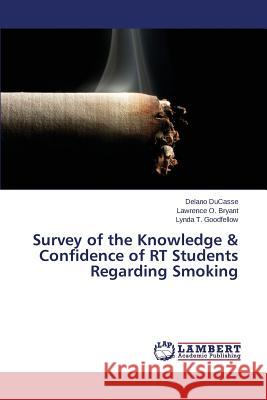Survey of the Knowledge & Confidence of Rt Students Regarding Smoking » książka
Survey of the Knowledge & Confidence of Rt Students Regarding Smoking
ISBN-13: 9783659529146 / Angielski / Miękka / 2014 / 60 str.
This book speaks on the tobacco abuse which is the main catalyst for avoidable death. There are increasing evidences which show that healthcare professionals are not adequately educated on how to help patients break the deadly cycle of tobacco dependence. Tobacco abuse remains the leading and major preventable cause of avoidable death in the United States. Since 1964, Tobacco use, primarily cigarette smoking, has caused more than 14 million premature deaths in the United States which is very big in number. Smoking-related diseases claim an estimated 443,000 American lives each year, including those affected indirectly, such as babies born prematurely due to prenatal maternal smoking and victims of "secondhand" exposure to tobacco's carcinogens. Health care providers, specifically respiratory therapists, need to be directly involved in using evidence-based practices to help prevent and eliminate tobacco use. Of all healthcare providers, respiratory therapists are most often in contact with patients that are diagnosed with smoking related diseases. This proximity may represent a great opportunity for education and evidence based interventions.
This book speaks on the tobacco abuse which is the main catalyst for avoidable death. There are increasing evidences which show that healthcare professionals are not adequately educated on how to help patients break the deadly cycle of tobacco dependence. Tobacco abuse remains the leading and major preventable cause of avoidable death in the United States. Since 1964, Tobacco use, primarily cigarette smoking, has caused more than 14 million premature deaths in the United States which is very big in number. Smoking-related diseases claim an estimated 443,000 American lives each year, including those affected indirectly, such as babies born prematurely due to prenatal maternal smoking and victims of "secondhand" exposure to tobaccos carcinogens. Health care providers,specifically respiratory therapists, need to be directly involved in using evidence-based practices to help prevent and eliminate tobacco use. Of all healthcare providers, respiratory therapists are most often in contact with patients that are diagnosed with smoking related diseases. This proximity may represent a great opportunity for education and evidence based interventions.











